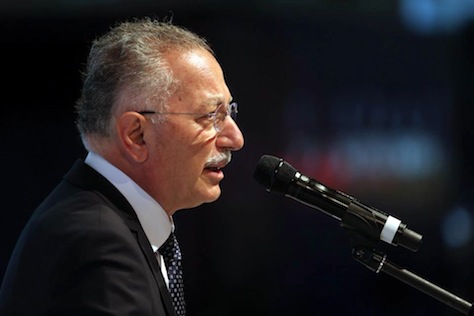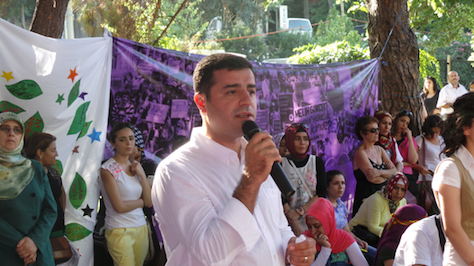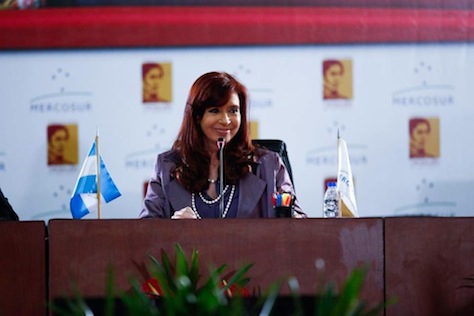
You’ve probably never seen Turkish prime minister Recep Tayyip Erdoğan like this before. 
In his bid to win Turkey’s first-ever direct presidential election, he donned bright orange athletic gear (pictured above) and took to the football field at a new stadium in Istanbul earlier this week, scoring a hat trick against token opposition.
Though that may replicate Erdoğan’s seemingly unstoppable rise, leading his governing Adalet ve Kalkınma Partisi (AKP, the Justice and Development Party) to victory three consecutive times — in 2002, 2007 and 2011 — his latest electoral quest may prove more difficult.
Turkish voters will elect a president in voting scheduled for August 10 among Erdoğan and two challengers, Ekmeleddin İhsanoğlu and Selahattin Demirtaş. If none of the candidates win more than 50% of the vote, the top two candidate will advance to an August 24 runoff.

The Cairo-born İhsanoğlu (pictured above), who served as the secretary-general of the Organisation of Islamic Cooperation between 2004 and January 2014, is an academic with a background in, of all things, the history of science.
An independent by party and a conservative by temperament, İhsanoğlu was nominated for the presidency by an alliance of two very different opposition groups pushed together by a mutual opposition to Erdoğan: the center-left Cumhuriyet Halk Partisi (CHP, the Republican People’s Party), most associated with Kemalism in the pre-Erdoğan era, and the ultranationalist, conservative Milliyetçi Hareket Partisi (MHP, Nationalist Movement Party).

Demirtaş (pictured above), a 41-year old rising star popular among Turkish leftists, is the candidate of the Kurdish-interest Barış ve Demokrasi Partisi (BDP, Peace and Democracy Party), though he hopes to win support from among the CHP’s more liberal supporters.
Defying decades of repressive precedent, Erdoğan has tried to pacify relations between the central government and Turkey’s Kurdish minority, and he’s increasingly made Turkey an improbable ally of the de facto independent Iraqi Kurdistan. That’s won Erdoğan genuine respect among Kurdish voters, though many will undoubtedly support Demirtaş in the election’s first round. It will nonetheless be something of a curiosity if Erdoğan is forced into a runoff, but makes it over the top on the basis of Kurdish votes.
Today, most observers give Erdoğan the edge, but the prime minister has become such a polarizing figure, and his project to place the Turkish power firmly in the presidency such a controversial idea, that it could be much closer than anticipated. If Erdoğan fails to clear 50% and thereupon faces a direct challenge from İhsanoğlu later in August, the runoff will become a referendum on whether Turkey will essentially become not an Islamist or democratic or Kemalist state, but an ‘Erdoğan state.’
If İhsanoğlu wins, he will become, like many of his predecessors, a figurehead with ceremonial powers and little else.
If Erdoğan wins, in either round, he will almost certainly transform the Turkish presidency into a much more powerful office. Formerly, the president was appointed to a single, seven-year term by the Turkish parliament. Under the new system, the president is elected to a five-year term with possible reelection. Continue reading Can Erdogan be stopped in first direct Turkish presidential election? →
![]()



